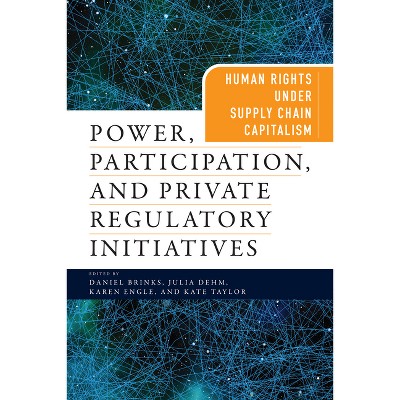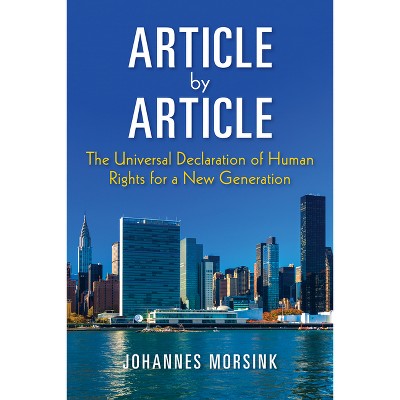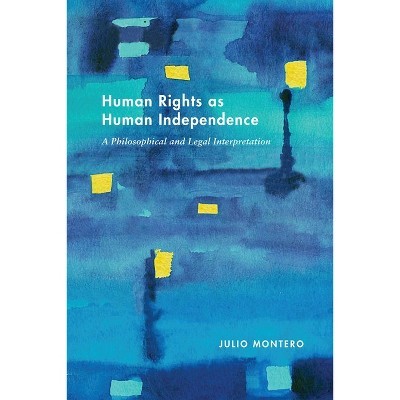Communists and Their Victims - (Pennsylvania Studies in Human Rights) by Roman David (Hardcover)

About this item
Highlights
- In Communists and Their Victims, Roman David identifies and examines four classes of justice measures--retributive, reparatory, revelatory, and reconciliatory--to discover which, if any, rectified the legacy of human rights abuses committed during the communist era in the Czech Republic.
- About the Author: Roman David is Professor of Sociology and Social Policy at Lingnan University in Hong Kong.
- 280 Pages
- Political Science, Human Rights
- Series Name: Pennsylvania Studies in Human Rights
Description
About the Book
Did justice measures rectify the legacy of human rights abuses committed during the communist era in the Czech Republic? Roman David weighs this question carefully to promote a transformative theory of justice that demonstrates that justice measures, in order to be successful, require a degree of reconciliation.Book Synopsis
In Communists and Their Victims, Roman David identifies and examines four classes of justice measures--retributive, reparatory, revelatory, and reconciliatory--to discover which, if any, rectified the legacy of human rights abuses committed during the communist era in the Czech Republic. Conducting interviews, focus groups, and nationwide surveys between 1999 and 2015, David looks at the impact of financial compensation and truth-sharing on victims' healing and examines the role of retribution in the behavior and attitudes of communists and their families. Emphasizing the narratives of former political prisoners, secret collaborators, and former Communist Party members, David tests the potential of justice measures to contribute to a shared sense of justice and their ability to overcome the class structure and ideological divides of a formerly communist regime.
Complementing his original research with analysis of legal judgments, governmental reports, and historical records, David finds that some justice measures were effective in overcoming material and ideological divides while others obstructed victims' healing and inhibited the transformation of communists. Identifying "justice without reconciliation" as the primary factor hampering the process of overcoming the past in the Czech Republic, Communists and Their Victims promotes a transformative theory of justice that demonstrates that justice measures, in order to be successful, require a degree of reconciliation.
Review Quotes
"David's findings should be required reading for everyone interested in postconflict and postrepression justice, and his methodology supplies a template that could and should be replicated elsewhere."-- "Times Literary Supplement"
"Roman David has written a perceptive and wise book on transitional justice in Eastern Europe that transcends his focus, the postcommunist Czech Republic, in time and place . . . [A] refreshing contrast to perspectives dominating transitional justice research and analyses and a myth-shattering contribution to this field . . . It is exemplary for its nuanced perspective and detail, and this is exactly the quality that makes it myth shattering."-- "American Journal of Sociology"
"Roman David interviewed communists and political prisoners-two groups whose experiences are vital to understanding both the communist regime and the democratic responses to it. Communists and Their Victims is a valuable and important contribution."-- "Nadya Nedelsky, Macalester College"
"Utilizing an effective and critical combination of quantitative and qualitative methods, Roman David presents the first comprehensive case study of a postconflict or postrepression country that goes beyond description and platitudes."-- "Harvey M. Weinstein, University of California, Berkeley"
About the Author
Roman David is Professor of Sociology and Social Policy at Lingnan University in Hong Kong. He is author of Lustration and Transitional Justice: Personnel Systems in the Czech Republic, Hungary, and Poland, also available from the University of Pennsylvania Press.










